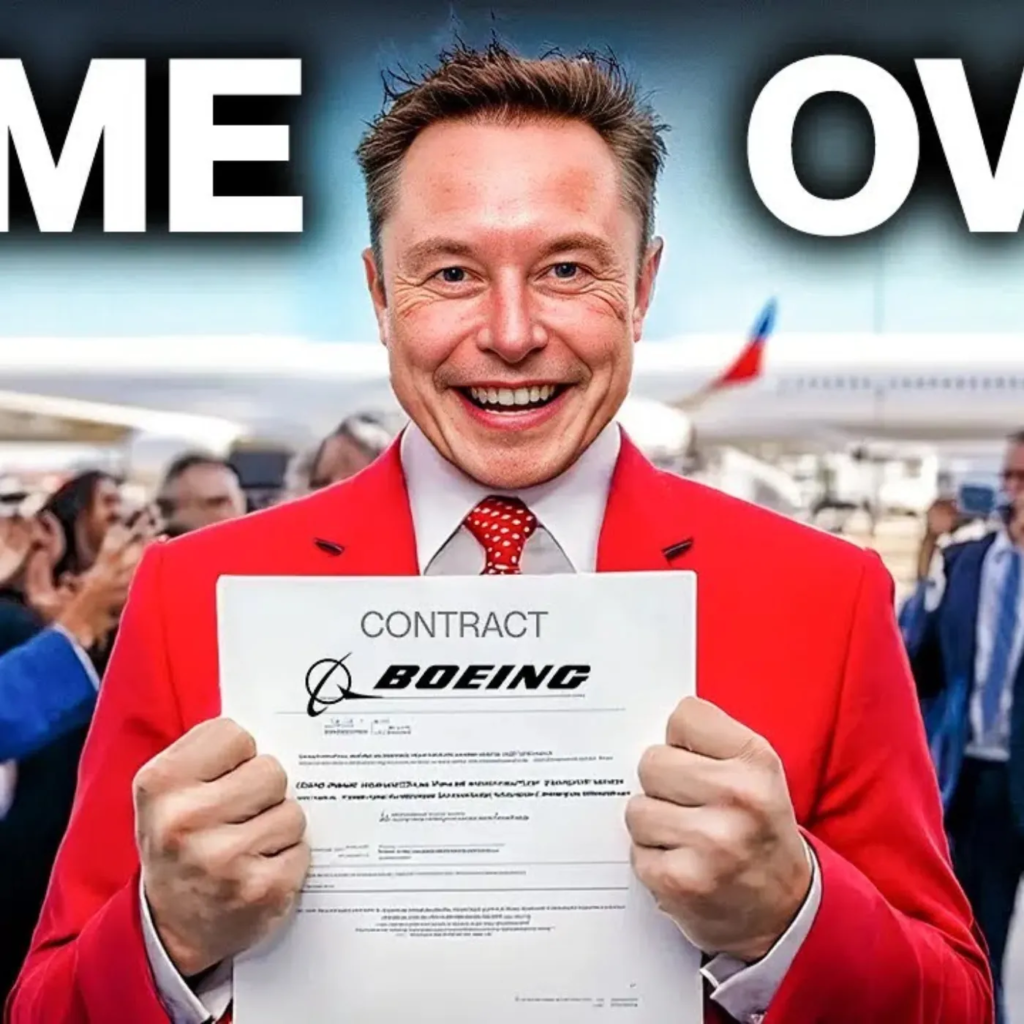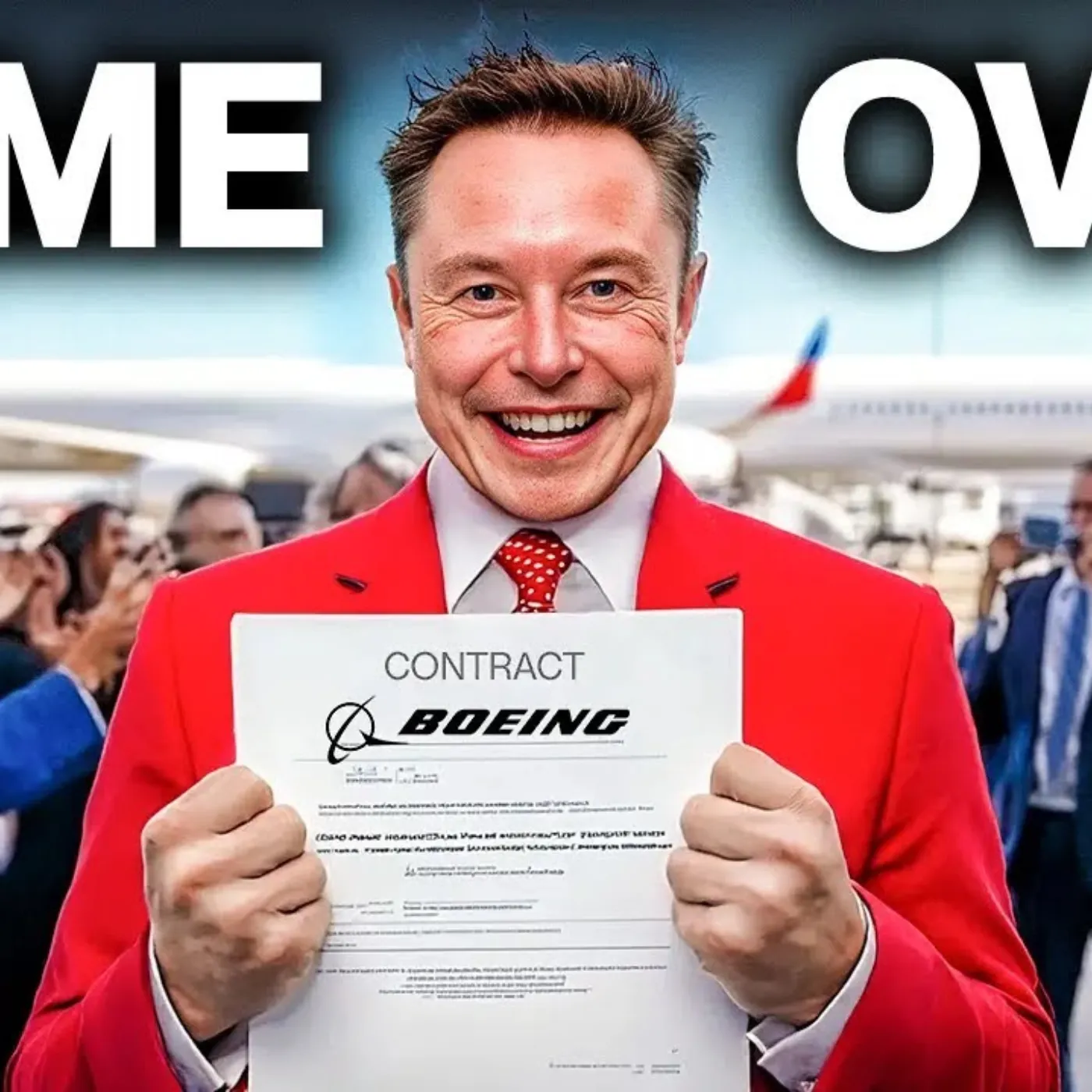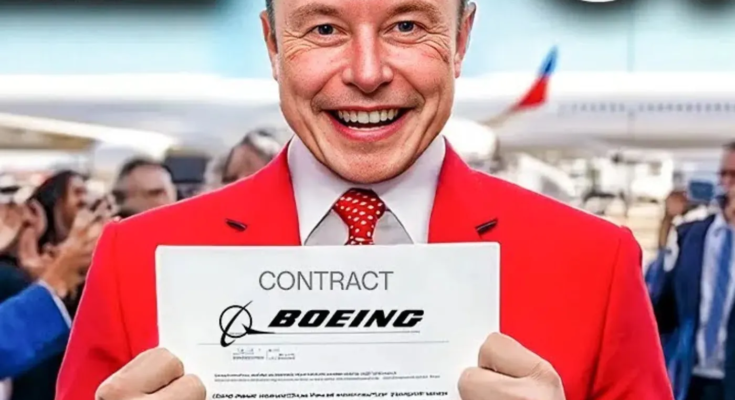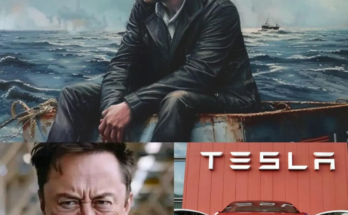
In a surprising and bold move, Elon Musk has just acquired Boeing, eliminating all competition in the aerospace industry. This unexpected acquisition is set to reshape the future of aviation and space exploration, with Musk’s companies now dominating two of the most significant sectors in modern technology. Let’s dive into what this means for the future and why Elon Musk’s latest acquisition is stirring such excitement and concern in the industry.

What Does This Acquisition Mean for Boeing and Musk’s Companies?
By acquiring Boeing, Musk is essentially consolidating the aerospace industry under his control. This move brings together SpaceX’s advancements in space exploration and Tesla’s electric technology, providing a powerful synergy in aviation and space technology. This strategic acquisition eliminates Boeing as a competitor in both commercial air travel and space exploration, leaving Musk’s ventures with little to no challengers in the field.
Boeing, once one of the largest aerospace manufacturers, has faced several challenges in recent years, from safety concerns to financial struggles. Musk’s ability to overhaul and streamline the company could result in major improvements to the way we travel, both in the skies and beyond.

How Will This Affect the Aerospace Industry?
The aerospace industry is undergoing a massive shift. With Musk’s control over both SpaceX and Boeing, he now holds a significant advantage in the global space race. SpaceX has already set the bar with its reusable rockets and ambitious missions, including plans for Mars exploration, and now it has the infrastructure of Boeing to help achieve these goals. By absorbing Boeing’s manufacturing capabilities, Musk’s companies will have access to even more resources to develop cutting-edge technologies for space travel, commercial aviation, and defense contracts.
This move could also have significant implications for airlines and aircraft manufacturing. With Boeing’s commercial airplane business now under the SpaceX umbrella, we may soon see the development of next-generation electric planes or other futuristic air travel technologies, all powered by Musk’s innovation.
The End of Competition?
While Musk has long been known for shaking up industries and challenging the status quo, this acquisition might be the final blow to any competition in the aerospace and aviation sectors. Boeing was one of the last major competitors capable of challenging SpaceX in space exploration, and in commercial aviation, Boeing was a dominant player alongside Airbus.
With Musk’s acquisition of Boeing, any competition left in both the space and aviation industries may be eliminated, solidifying his position as the unchallenged leader in both fields. The ability to control these two giant sectors means that Musk’s influence will continue to expand exponentially, with little to no barriers in his path.
What’s Next for Musk and the Aerospace Industry?
With Boeing now a part of Musk’s empire, the world can expect a series of groundbreaking developments in aviation and space exploration. Here’s what we can look forward to:
Revolutionized Commercial Aviation: Electric airplanes, more efficient air travel, and advancements in sustainable aviation could be on the horizon.
New Space Technologies: The merger could accelerate Mars colonization efforts, further lunar exploration, and space tourism.
Unprecedented Growth: With Boeing’s vast resources, Musk could dominate government contracts, private space missions, and defense technology.

The announcement that Elon Musk has acquired Boeing, effectively eliminating all competition in the aerospace and aviation industries, is a game changer. With this acquisition, Musk has not only solidified his status as the leader of the space race but has also positioned himself as a major force in commercial air travel. As Musk’s companies continue to innovate and disrupt industries, the future of aerospace and aviation looks poised for groundbreaking advancements, with Musk at the helm.
Stay tuned for more updates on this incredible acquisition and what it means for the future of space exploration and aviation.



